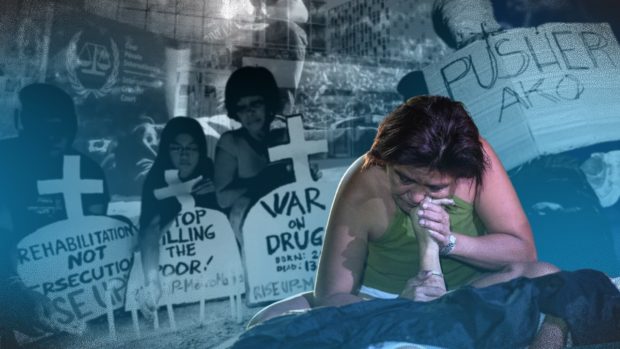
(INQUIRER.net FILE PHOTO / Jerome Cristobal)
MANILA, Philippines — Senator Jinggoy Estrada called investigators of the International Criminal Court (ICC) “white monkeys” and reiterated that they should not enter the country to look into former President Rodrigo Duterte’s alleged crimes against humanity concerning the bloody war on drugs.
Estrada believes that the country has a working justice system, hence, international bodies should not interfere.
“Itong pinapupunta, kung sino man ang pinupunta ng ICC dito sa ating bansa, kung sino mang Poncio Pilatong prosecutor, itong mga puting unggoy na ito, ‘di na dapat papasukin dito sa ating bansa because that will be an exercise in futility. I am confident that the DOJ (Department of Justice) is not remise in its primary mission to uphold the rule of law. We should trust our justice system,” he said during Wednesday’s plenary session.
(Those tasked by the ICC to visit the country, these white monkeys, should not enter the country because that will be an exercise in futility.)
“Katulad nga ng sinabi ng aking matalik na kaibigan na si Senator [Robin] Padilla, hindi tayo dapat magpauto, hindi tayo dapat sumunod kung ano mang instructions na ibibigay sa atin nitong mga dayuhang unggoy na ito,” he added.
(As my friend Senator Padilla said, we should not be gullible and obey whatever instructions these foreign monkeys issued.)
Estrada and Padilla filed resolutions, seeking to protect Duterte from the ICC probe.
In September 2021, the ICC pre-trial chamber approved the probe into the crimes against humanity filed against Duterte. Two months later, it was suspended following the Philippines’ request.
The Philippines said the government was investigating supposed extrajudicial killings and other atrocities of the war on drugs, launched in 2016.
The ICC resumed its investigation as it was “not satisfied that the Philippines is undertaking relevant investigations that would warrant a deferral of the Court’s investigations based on the complementarity principle.”
Government data showed 6,248 drug war deaths, much lower than human rights organizations’ estimate of more than 20,000.